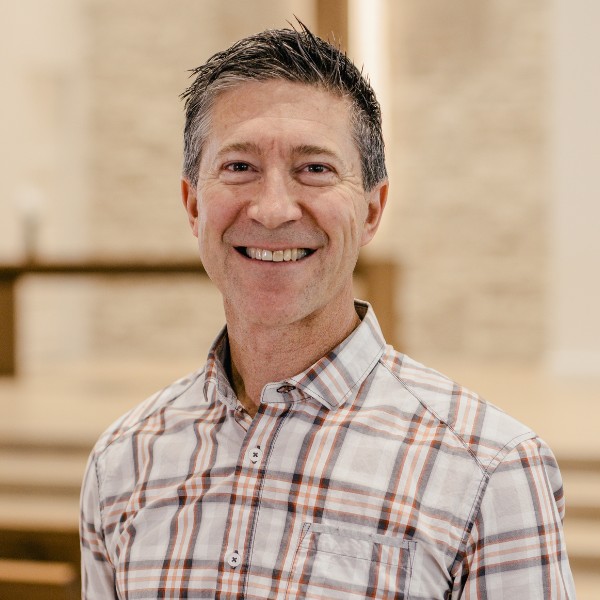he said they’d found a brothel
on the dig he did last night
I asked him how they know
he sighed:
a pit of babies’ bones
a pit of newborn babies’ bones was how to spot a brothel
– Hollie McNish, “Conversation with an archaeologist,” 2019
I read McNish’s poem a couple weeks ago, quoted in an essay called “We are Repaganizing” by Louise Perry. Perry is not a Christian, but she is ambivalent about the way the West is tilting back toward a pagan outlook on life. Immanent in its horizon, paganism looks to this material world, and this present life, for meaning, enjoyment, and moral direction. Utilitarian concerns, which value the greatest good for the greatest number of people (“the good” in this framework is not clearly defined and tends to evolve, which is a problem), are prioritized over other virtues such as self-sacrifice, loyalty and a future orientation. Because of this, the modern West is in the process of abandoning its once robust commitment to the value of every life, no matter how inconvenient or disabled or burdensome that individual life may be.
This point of view – that some lives are either not worth living or too burdensome, and we are free to end those lives, whether young and the old – is historically typical. Perry cites an eminent archaeologist, David F. Lancy:
Among the ancient Greeks and Romans sickly, unattractive, or unwanted infants were “exposed” or otherwise eliminated; the Chinese and Hindus of India have, since time immemorial, destroyed daughters at birth, to open the way for a new pregnancy and a more desirable male offspring; the Japanese likened infanticide to thinning the rice plants in their paddies; among foragers such as the Inuit or the Jivaro, unwanted babies were left to nature to claim.
Whether abortion or infanticide, the ancients made no neat distinctions. Both were permissible. But miraculously, within this pagan milieu arose Christianity. Christianity makes the strange and exceptional claim that God became flesh to serve the humanity that He created. This Savior of the world chose to submit to the terrible torture mechanism of the Romans, reserved for the most lowly and despised among the conquered – the cross. If the very Son of God endured this ignominy, then his followers must look at weakness and strength in a new light:
But God chose what is foolish in the world to shame the wise; God chose what is weak in the world to shame the strong; God chose what is low and despised in the world, even things that are not, to bring to nothing things that are. — 1 Corinthians 1:27-28
It was this strange commitment to the weak and the poor that has radically remade the world. Orphanages and hospitals were peculiar institutions of Christians that have spread worldwide. Likewise the commitment to the unborn and infants.
Since its founding, the Church has proclaimed that every human being is made in the image of God and valuable. It has made the audacious claim that slave and free, male and female, young and old are precious in God’s sight. It has urged its own to care for the weak and vulnerable, since we follow a weak and vulnerable Savior. It has stood fast against the belief that because babies are unborn or newborn they are disposable, that because they have no voice they can be dispatched, that because they require tremendous work to raise, we can expeditiously, quietly murder them.
And yet, as Perry has observed, this view that every human life is precious is being assailed in our time and in various ways. Whether by euthanasia, or abortion, or even infanticide, the age-old pagan view is reasserting itself.
As elders, we believe that one expression of this anti-Christian view in our time has to do with the upcoming November 7th ballot issue. Issue 1 presents a misshapen and distorted compassion. It claims that kindness means allowing mothers to destroy their unborn child. It claims that “reproductive freedom” includes the freedom to end another human being’s life, at any time in the pregnancy. We want to persuade our brothers and sisters that this is wrong, and thus carry on the 2,000 year commitment held by Christians: we protect the vulnerable and voiceless.
There are times when deeply held Biblical and theological beliefs become “political,” not because we have chosen to make them so, but because of the circumstances we find ourselves in. This is one of those times. We believe that it is not for us to shy away, simply because this venerable commitment to the vulnerable has become political. Rather, we hope to express our Christian convictions in order to see the vulnerable protected and the voiceless defended. We invite you to join us in this effort by prayer, by gathering together, and by speaking up.
This Sunday October 8th from 2-4p at Franklin Church, NAPC will host a lecture and discussion entitled “The Historic and Theological Foundations for the Protection of the Unborn.” This will be co-led by Pastor David, elder Brett Core, NAPC’s Life Team, and Kathy Scanlon, Executive Director of Pregnancy Decision Health Centers.
On Sunday October 22nd, from 2-4p at the new church building we will host a second lecture and discussion, “The Legal and Cultural Implications of Issue 1.”
We hope that you will join us. We understand that this is a controversial issue, and some will wonder why we would wade into such a politically charged topic. Others will struggle with this because of their own privately held convictions of conscience. We have always been and will continue to be a place that is safe to discuss these matters together, in community. We cannot compel, only persuade.
In Christ,
Pastor David and the NAPC Elders

